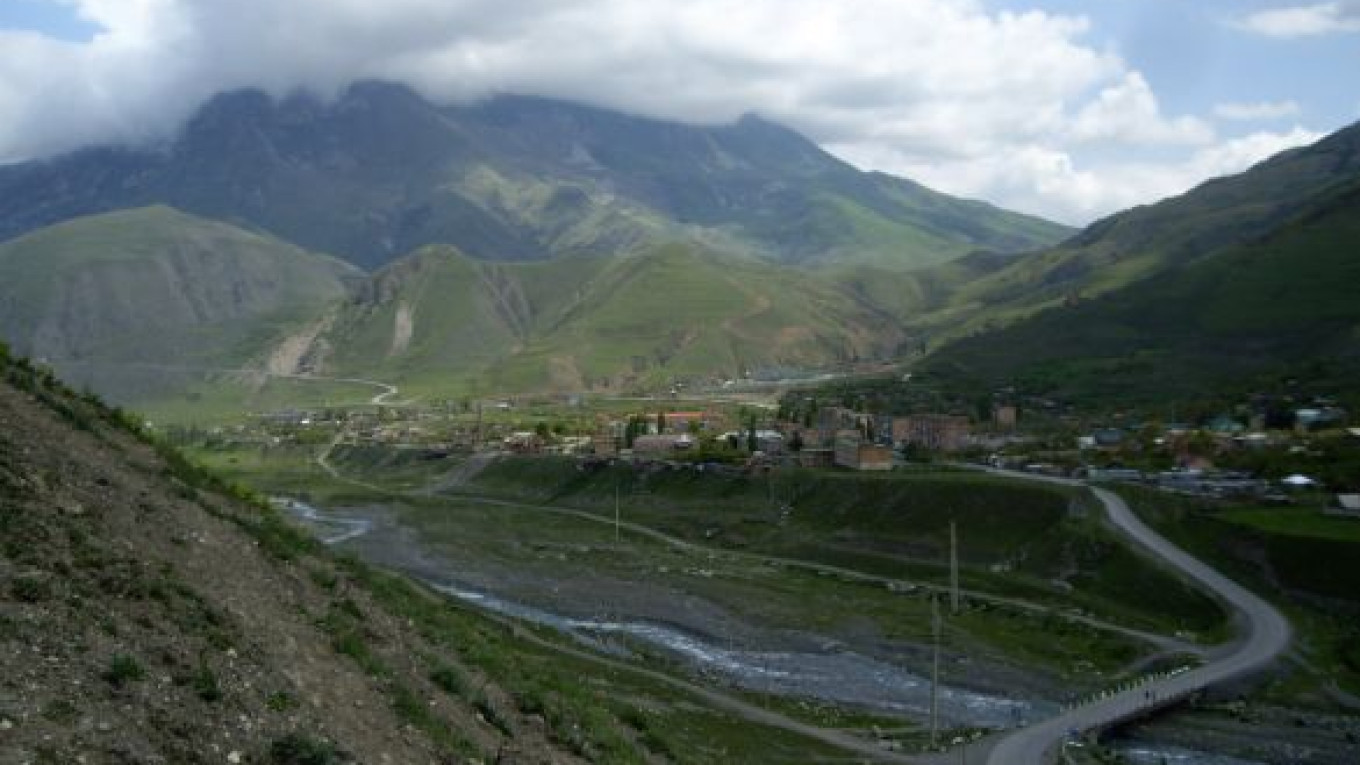More than 160 nationalities live in Russia, and most of them have a presence in Moscow. It will probably take a lifetime to learn all of their cultures. But you can start with one indispensable element of any culture: food.
We are not talking about the Georgian or generic Central Asian fare peddled on just about every street corner in Moscow. There are lots more special places catering to those feeling nostalgic about their far-away homelands, and only a handful of people are aware of their existence.
In Moscow, Ossetian cuisine is known for pies, and rightly so. Ossetian pies became an alternative to pizza delivery for late-night workaholics in offices around the city. The Ossetians claim that the pies made in Moscow are not the same, and the overhead bins on the Vladikavkaz-Moscow flights are always stuffed with boxes of pies. What you're served at the restaurant Vladikavkaz (Prospekt Mira, All-Russia Exhibition Center, Bldg. 18, +7 495-644-5667) is probably as close to the real thing as it gets outside Ossetia.
Vladikavkaz is hidden behind the health pavilion, a bit farther down the main alley from the famous Friendship of Nations Fountain. Traditionally, three pies are served during an Ossetian feast: walibakh, which is filled with cheese; kartofdjin, which contains cheese and potatoes; and tsakharadjin, which combines cheese and beet leaves. These pies symbolize the past, the present and the future. The three most powerful Narts, demigod warriors of the ancient Ossetian epic poem, are often depicted eating them at a table together. It's advisable to eat the pies with Ossetian beer. It's dark and sweet and tastes nothing like regular beer.
Buryatia is a Buddhist republic on the southern shore of Lake Baikal. For a long time, Buryat dishes were served in Moscow's Cafe Selenga, quite an exhausting bus ride away from metro Prospekt Vernadskogo. But recently, the owners opened another cafe, the slightly differently spelled Selenge (23/15 Ulitsa Malaya Dmitrovka, +7 495-650-3027), just a five-minute walk from Pushkin Square.
At Selenge, tables are arranged around a dais with wolf hide and a shrine devoted to Dalai Lama. The main dish is dumplings called buuz (or the Russified version, poza) with a mix of minced beef, pork and onion. There's not as much soup inside as there is in the Georgian dish khinkali, but you still have to bite off the bottom and suck out the soup. You can have buuzs with traditional Buryat green tea with milk, but it's even better with vodka. Omul, a fish found only in Lake Baikal, is quite rare in Moscow restaurants and definitely worth a try, either baked or smoked.
Kalmykia is another Buddhist region of Russia, several thousand kilometers away from Buryatia. But Kalmyk food can be found in the very center of Moscow, in the basement of the perpetually empty Nikolskaya Plaza shopping center. The restaurant is called Tibet-Himalayas (10 Ulitsa Nikolskaya, +7 495-287-2021) and serves mostly Indian and Chinese food, but it has a Kalmyk menu as well.
Kalmyks have always been nomads, and their food is simple but rich, which is only fitting for a life in the harsh southern steppes. An obvious starter would be, of course, dry horse meat. If you order makhan sheltagan, you will be served a bowl of soup, a bowl of boiled lamb and potatoes with onion sauce. You are supposed to combine pieces of lamb and potatoes and sip the soup in between. If you're feeling adventurous, you can have some Kalmyk tea — with salt and melted butter. But guess what? Makhan sheltagan is great with vodka, too.
Contact the author at [email protected]
A Message from The Moscow Times:
Dear readers,
We are facing unprecedented challenges. Russia's Prosecutor General's Office has designated The Moscow Times as an "undesirable" organization, criminalizing our work and putting our staff at risk of prosecution. This follows our earlier unjust labeling as a "foreign agent."
These actions are direct attempts to silence independent journalism in Russia. The authorities claim our work "discredits the decisions of the Russian leadership." We see things differently: we strive to provide accurate, unbiased reporting on Russia.
We, the journalists of The Moscow Times, refuse to be silenced. But to continue our work, we need your help.
Your support, no matter how small, makes a world of difference. If you can, please support us monthly starting from just $2. It's quick to set up, and every contribution makes a significant impact.
By supporting The Moscow Times, you're defending open, independent journalism in the face of repression. Thank you for standing with us.
Remind me later.


